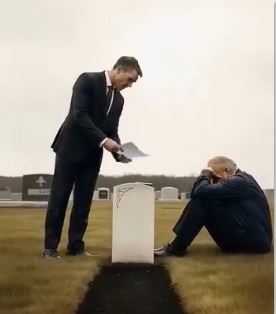
The lilies from the funeral were still fragrant when the phone calls began. My son, David, spoke with the clipped precision of someone finalizing a contract, suggesting I sell the house “for everyone’s benefit.” My daughter called soon after, her voice soft but purposeful, talking about “helping the family” and “planning ahead.” I listened quietly, the ache of losing my wife, Margaret, still too fresh to put into words. They meant well in their own way, but I knew my wife’s wisdom by heart — she always said true wealth wasn’t found in money or possessions, but in peace, independence, and the grace to live simply.
That night, unable to sleep, I sat in her study — her favorite room, still carrying her scent of lilac and paper. In the bottom drawer of her desk, beneath old letters and notebooks, I found a pale blue folder labeled in her familiar handwriting: “If you’re reading this, it’s time you knew what’s inside.” Inside were documents for a small seaside cottage I’d never heard of, along with a letter written in her delicate script. She explained that she’d quietly purchased it years ago, saving it as a gift — a place for me to start anew, to paint, to garden, and to find peace when the world felt too heavy.
The next morning, when David called again to ask if I had begun packing, I smiled. “I have,” I told him. “But not for your house. For ours — the one your mother and I dreamed about.” He fell silent, and for the first time in months, I felt the weight lift from my chest. Margaret had seen a future I couldn’t imagine — one where life continued, gentle and full of small joys.
Weeks later, standing on the porch of that quiet cottage, I watched the sunset spread gold across the sea. The air smelled of salt and hope. I realized then that Margaret hadn’t just left me property or comfort — she had left me purpose. Her final gift was not about starting over, but about remembering how to live. Love, I understood, never really leaves; it simply changes form, guiding us toward peace one quiet sunrise at a time.